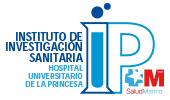Contact details
Director:
Titulado Superior Especializado (Specialised Postgraduate Degree)
Proteomics Facility (lab. 311:
Severo Ochoa Molecular Biology Centre
C/ Nicolás Cabrera, 1 U.A.M.
Cantoblanco, 28049, Madrid, Spain
Tel +34 911 96 46 36/46 54
Fax +34 911 96 44 20
The Department of Proteomics of the Princesa Instituto de Investigación Sanitaria (Health Research Institute) is one of the scientific departments belonging to the Severo Ochoa Molecular Biology Centre. Its aim is to provide scientific and technical support to different research groups in identifying and characterising proteins through mass spectrometry techniques.
Since 2005 our laboratory has formed part of the Spanish National Proteomics Institute, now called the Plataforma de Proteómica de la Red Carlos III (Carlos III Proteomics Web Platform). ProteoRed-ISCIII is a national network for the coordination, integration and development of Spanish Proteomics Departments, providing proteomics services in support of Spanish researchers in this field. ProteoRed-ISCIII is advancing the science of proteomics and promoting research and investigation into proteomics and related topics for public benefit. Its main objective is to integrate and coordinate the activities of Spanish proteomics departments and to assess the quality of the services offered. ProteoRed is a mark of quality.
Our department provides electronic management through the ProteoRed website, www.proteored.org, and the department website, www.cbm.uam.es/servicios/proteomica.htm. Users have easy access to all information, including: services provided, price list, infrastructure, protocols, and proteomics events. Having designed the work alongside department staff, users can request analyses through the ProteoRed website and receive results via e-mail.
- Carlos García García, Titulado Superior (Postgraduate Degree)
- Laura Peláez Aguado, Research Assistant
- Esperanza Morato López, ProteoRed Technician
- Production of one-dimensional gels (SDS-PAGE), conventional Coomassie staining, colloidal or fluorescent staining (SYPRO Ruby).
- Analysis of molecular weight of peptides and proteins using MALDI-TOF mass spectrometry
- Enzymatic digestion in SDS-PAGE gel (uni- or bi-dimensional) and in solution.
- Obtaining the peptide map using MALDI-TOF and identification of proteins in databases using peptide footprint (PMF).
- Analysis using LC-MS/MS of protein mixtures through SMIM (single MS/MS ion monitoring) to look for proteins and/or peptides of interest. (Medium and high sensitivity)
- Analysis using LC-MS/MS of protein mixtures through DE (Dynamic Exclusion) for mass identification of peptides and proteins in databases. (Medium and high sensitivity)
- Analysis of proteomes.
- Characterisation of post-translational modifications.









